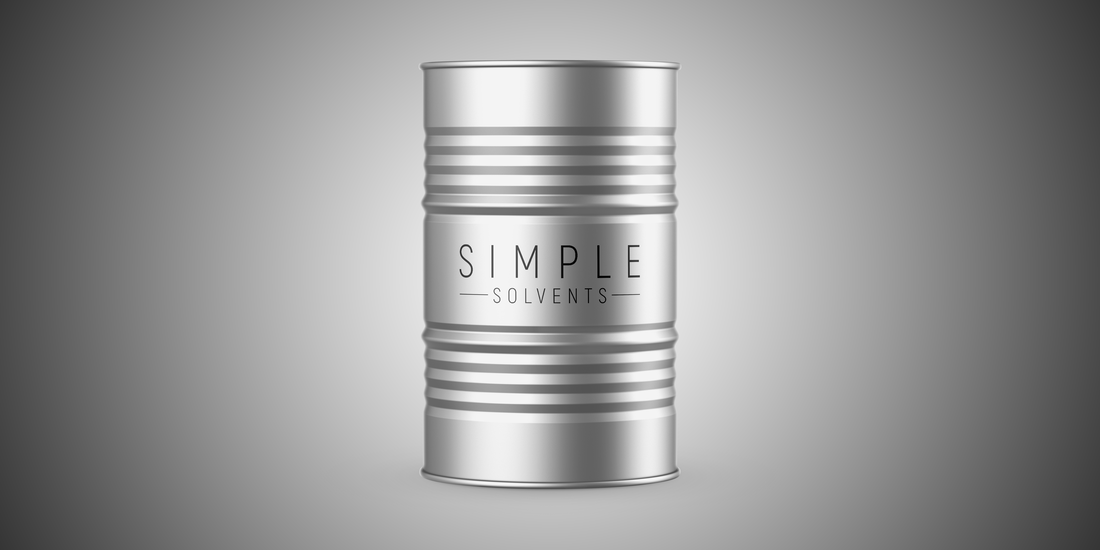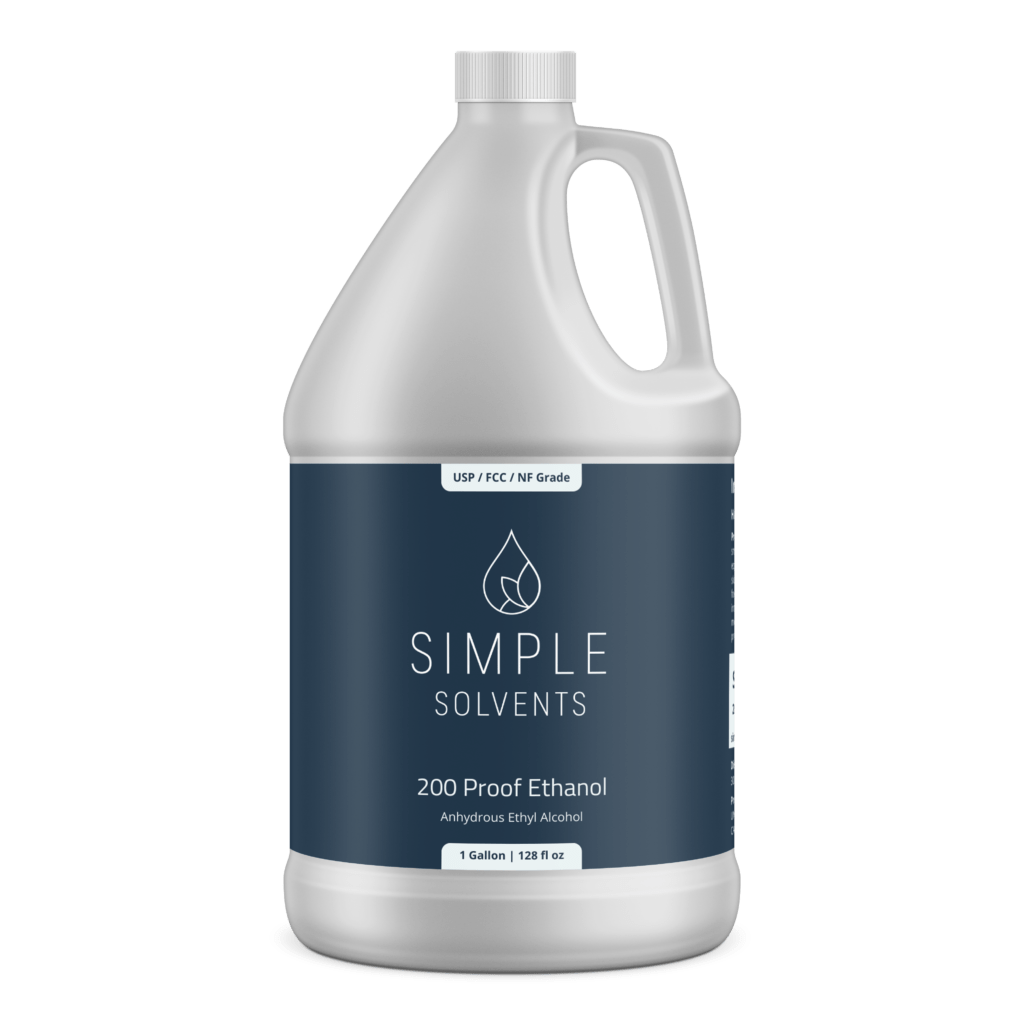What Is 200 Proof Ethanol? How Does It Compare to Other Types of Ethanol?

What Is 200 Proof Ethanol? How Does It Compare to Other Types of Ethanol?
200 proof ethanol is the purest form of ethanol. You can buy it online, from web stores such as Simple Solvents. Like any other alcohol, you can use it for various purposes, and it has its advantages and drawbacks.
Most people do not know the difference between 200 proof ethanol and some other types of the substance. In this article, we will discover what 200 proof alcohol is and how it compares to other types of ethanol. First, we will say a few things about pure ethanol, and then we will compare it with other liquids from this category.

WHAT IS SO SPECIAL ABOUT 200 PROOF ETHANOL?
This substance is often referred to as an un-denatured liquid. In other words, it doesn’t have any foreign ingredients. It is the purest form of ethanol that has only one single component. A lot of people also refer to it as pure alcohol. Unlike some other liquids from this category, it doesn’t have bitterants that would make it undrinkable. You can also call it dehydrated alcohol because of its minuscule water content.
The only thing that is present within pure ethanol (besides alcohol, of course) is water. Most companies that sell the product perform tests that would verify their purity. The level of purity is determined after HPLC and LCMS analysis. You might also utilize some other tests.
HPLC or high-performance liquid chromatography is a technique that relies on liquid instead of gas as the mobile phase. These samples will not be heated, making them ideal for non-volatile chemicals. The test is also good for heat-sensitive chemicals.
Molecular sieves help create ethanol with more than 95.6% alcohol. That cannot be done with a regular distillation process. In order for a substance to be categorized as pure ethanol, it needs to have more than 99.98% alcohol content. While the substance will have more than 99% of alcohol, there are different scales that would measure its purity.
Ethanol, in general, has numerous uses. It is a very common chemical in labs and medical facilities. It is highly flammable, so you can use it in situations where you need to start or prolong a fire. The substance can be used for eliminating insects and small pests. Nevertheless, different ethanol types have different uses. While 95% ethanol and 99% ethanol might look similar to an inexperienced person, they have some major differences between them.
3 MAIN CATEGORIES OF ETHANOL
Among others, the substance can be used by biologists. Most commonly, it is an ingredient for purification. You can also use it for staining and restraining specimens, dehydrating various tissues before you embed them, and of course, for disinfection. Here are the 3 most common types of ethanol that microbiologists use:
1) 95% ETHANOL
This product has the highest possible concentration of ethanol that you can receive through distillation. This substance is categorized as an azeotrope. In other words, its vapor state has the same ratio of ethanol to water as its liquid state.
2) ABSOLUTE OR PURE ETHANOL
This substance has a concentration between 99 and 100 percent. It is very important for certain processes during which you cannot use water. In most cases, companies create high concentration ethanol with various additives. These substances are meant to disrupt azeotrope composition, thus allowing additional distillation. Because of that, it is normal for absolute ethanol to sometimes have trace amounts of chemicals like benzene. The substance is hygroscopic, which means that it attracts water. As a result, it probably will not remain with the same chemical composition for long.
3) DENATURED ETHANOL
Lastly, we have denatured ethanol. The reason why it is called denatured is that it is enriched with additives. Companies use denaturants like heptane, methanol, isopropanol and others for their production. One of the main reasons for denaturants is so people cannot drink the liquid. In addition, denatured ethanol has different and lesser tax implications than pure alcohol. The tax implications for pure ethanol are $13.50 per proof gallon which is 4-10 times more expensive than the ethanol itself costs. Denatured alcohol makes the products more affordable for use on a large scale.
HOW ARE ETHANOL PRODUCTS USED?
Whether we’re talking about 200 proof ethanol or some other types of the substance, you can use them in lots of different ways:
- ETHANOL FOR MOLECULAR BIOLOGY
Needless to say, all molecular biologists rely on this substance in one way or another. Most of them use non-denatured alcohol in either 95 or 100% concentration. Keep in mind that when you work with certain nucleic acids, you shouldn’t use absolute ethanol. Good examples are fluorescent nucleic acids that leave background fluorescence due to residual benzene.
- ETHANOL AS A DISINFECTANT & SANITIZER
This substance is most commonly used for disinfection. In most cases, the denatured type is utilized. You need to be careful with concentration, though. Ethanol can be used for disinfection only if it has a concentration between 70 to 90%.
While this might sound strange, ethanol with a lower concentration is much better for this particular function. The problem with higher concentrations is that they coagulate the protein, which makes the cell dormant. When you use a lower concentrated substance, the increased water content will make it harder for ethanol to evaporate. Due to this fact, the substance will have more time to penetrate cell membranes and affect them.
- ETHANOL AS A SOLVENT
Ethanol is commonly used as a solvent due to it’s polarity and carbon chain length. It is becoming increasingly popular in botanical extraction like hemp and cannabis.
What do you need to know about vanishing volumes?
Another thing worth noting is that water and ethanol mixes will not have additive volumes. There is a good reason for this:
- Water molecules create hydrogen bonds between themselves. As a result, there will be empty space between the molecules.
- Keep in mind that ethanol molecules are much smaller than water molecules.
In other words, when you try to mix them, the ethanol molecules will take space between water molecules. That would prevent the reaction. We also need to mention the forces that act between these molecules.
Lastly, if you wish to buy 200 proof ethanol, make sure to visit the Simple Solvents store.
